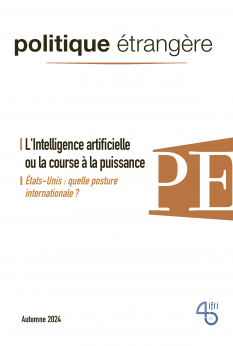
POLITIQUE ÉTRANGÈRE N° 3/2024
Pour acheter ce numéro, contactez-nous
Recevez les numéros de l'année en cours et accédez à l'intégralité des articles en ligne.
Au XXe siècle, le chiisme a subi une transformation majeure avec la révolution islamique en Iran, qui a promu la doctrine de wilâyat al-faqîh. Adoptée par le Hezbollah libanais, cette théorie confère au théologien-juriste le pouvoir exclusif de gouverner la oumma. En dépit des réserves locales, le Hezbollah tente de diffuser cette doctrine au Liban, entraînant des controverses sur sa loyauté envers le pays. Cette dernière pourrait être particulièrement questionnée dans l'après 7 octobre 2023.
In the twentieth century, Shia Islam underwent a major shift following the Islamic revolution in Iran, which promoted the doctrine of wilâyat al-faqîh. Adopted by Lebanese Hezbollah, this theory confers the power to govern the Ummah exclusively upon theologian-jurists. Despite local reservations, Hezbollah is attempting to spread this doctrine in Lebanon, sparking controversy over its loyalty toward the country, a loyalty that may increasingly be called into question in the aftermath of October 23, 2023.